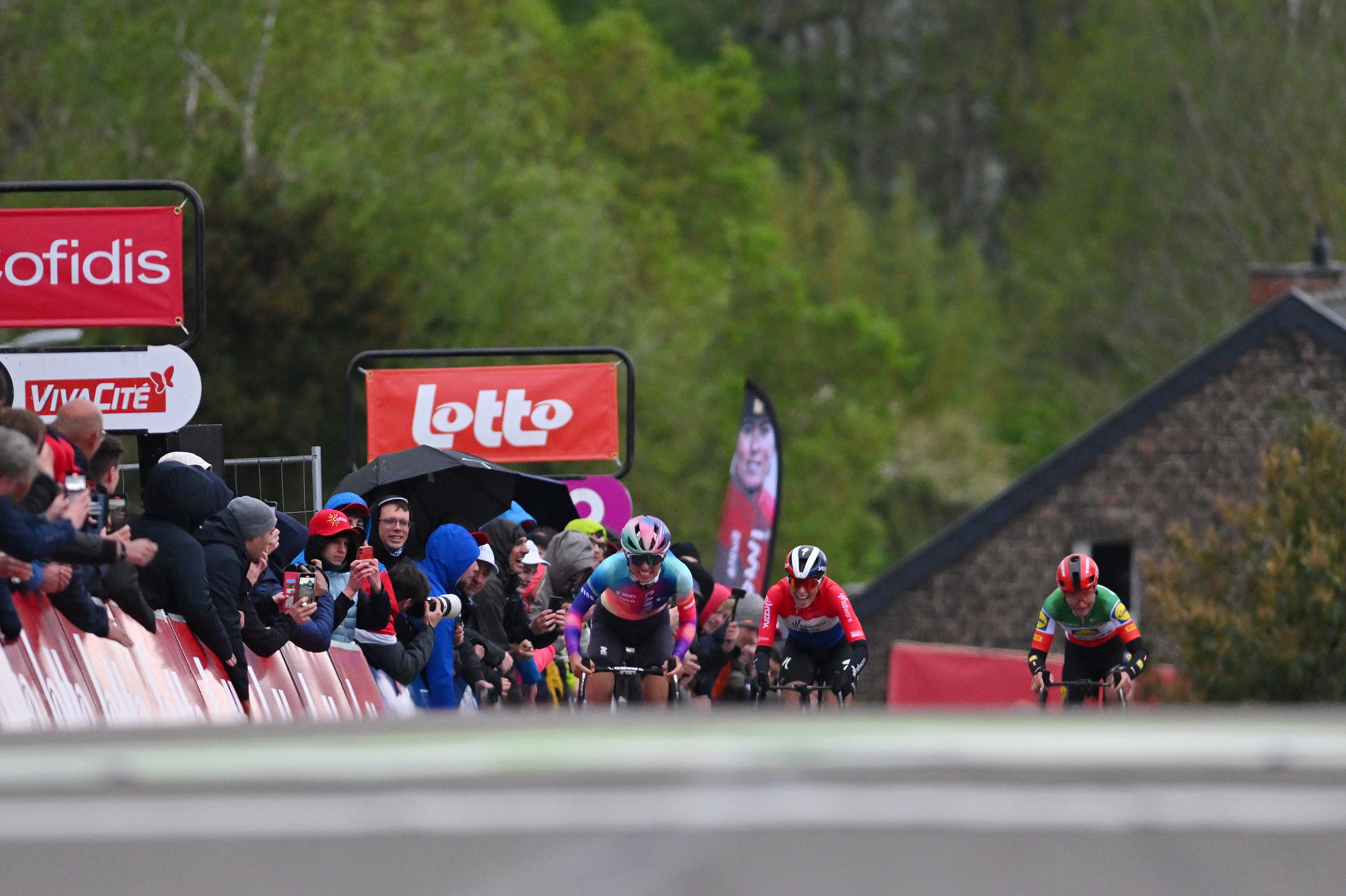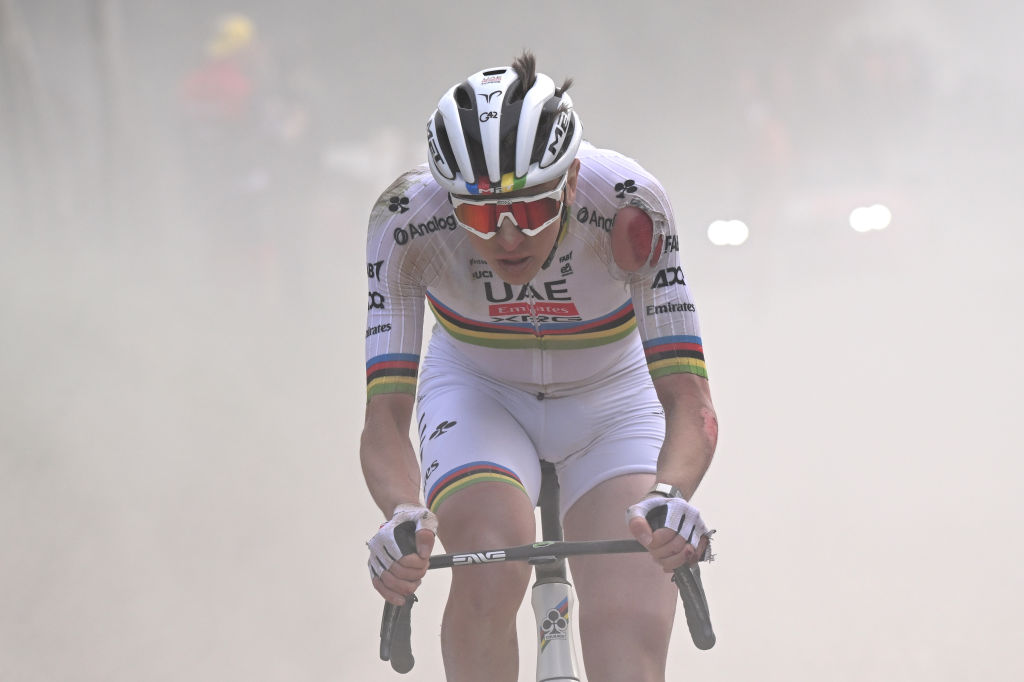‘There were so many waves being broadcast from the bike and rider unit we could have turned the heating down’: Has cycling become too smart?
Going for a ride is no longer, seemingly, about the experience had on the bike; rather, it’s about the analysis of the event on return, writes our Undercover Mechanic


We recently had a client stop by the shop mid-ride for a little chat. By the time he had a coffee in his hand, his bike and wrist had started chirping like the dawn chorus. I’m sure we’ve all experienced the little bleep of head units at the coffee shop, but this was something else.

Cycling Weekly's Undercover Mechanic publishes his thoughts on the state of the industry once a month. He's been working with bikes for over two decades, offering servicing on models from some of cycling's best (and worst) marques. You'll find him at all major trade shows and events, just don't expect him to make himself known.
On closer inspection his bike looked like it had been dipped in glue and thrown through a branch of Maplin Electronics (RIP, the bricks and mortar stores). It had a solar-powered head unit, front and rear radar cameras, dual-sided power cranks, tyre pressure monitors, electronic gearing - and the rider was wearing a smart watch, a Whoop band and a chest heart rate monitor, all paired to his new smart helmet. There were so many waves being broadcast from the bike and rider unit we could have turned the heating down.
In a quiet moment we discussed why, as a self-confessed 'fairly average club rider', he needed all this data. It turned out that it was his main motivator for getting out in these cold and wet months. Seeing a slight upturn in data, on no doubt the five different cycling apps he was using, was what got him out of the door in the morning. And, who can argue with that?
Data has become the currency of modern cycling. What started with simple mechanical speedos bolted to the front fork has escalated into an arms race of metrics. Today we can measure cadence, heart rate, power output, VO2 max, left/right power balance, pedalling efficiency, heart rate variability, blood glucose, respiration rates… the list goes on. Going for a ride is no longer, seemingly, about the experience had on the bike; rather, it’s about the analysis of the event on return.
Apps like Strava, TrainingPeaks and Zwift have further gamified this natural human desire to seek gratification. What used to be a post-ride chat at the coffee shop has been replaced by a period of time spent staring at phones, with occasional exclamations of joy or anguish. It’s no surprise that "if it’s not on Strava, it didn’t happen" has become the t-shirt slogan of the 2020s, and don’t even get me started on digital doping.
The smart helmets we saw at cycling’s largest annual trade show, Eurobike, this year promise to make us safer. They boast integrated lights, indicators, and crash sensors that alert emergency contacts if an accident is detected. My worry with these is that - due to the expense of these clever lids - they won’t get replaced should the rider have a spill. A helmet is ultimately a consumable, but if it’s the price of an iPhone, cyclists risk wearing helmets they can’t afford to replace.
However, there is no doubt that some tech has massively increased the efficacy of training and racing, such as the power meter. Back when SRM released the first commercially available power meter, in 1989, the cost and availability rendered these devices a pro-only tool. I’m sure I wasn’t alone in lusting after one of those SRM head units that every pro seemed to have back then. Now due to the trickle-down of the technology, power meters have become almost ubiquitous and there’s no denying they are a powerful tool when it comes to controlling a workout or assessing progress on a training plan.
One of the current gripes about the industry is that bikes have become too expensive, and I wonder whether this drive for increased technology is part of the reason for that. Add to that the price of monthly subscriptions, smart trainers and wearables and what was once a very working-class sport when I started cycling, is in danger of becoming like golf, an analogy that I know has been flogged to death already.
In our workshop, we regularly have to offer IT support for clients, and, most of my non-cycling friends roll their eyes at me when I tell them I have to plug modern bikes into a computer to fix them sometimes. As Aldous Huxley put it, it’s a brave New World.
As ever with the bike industry (and other areas of life), just because it can be measured, it doesn’t mean it should be. The correction to this arms race of tech seems to have started already: I think gravel riding brought back a real appreciation for the simplicity of going out on your bike and enjoying nature. I don’t think it’s any coincidence that both Shimano and Campagnolo are doing very well with their mechanical gravel groupsets.
So, has cycling become too smart? The answer depends on what kind of rider you are. Cycling isn’t really one sport, but rather a genre. Road racers, for example, have very different needs to downhill mountain bikers. So I think you just need to ask yourself what sort of rider you are, and, what data that type of riding actually requires. And maybe next time you go out on your bike, just forget to press the start button on that head unit, and see if it actually ruins or improves your experience.

Thank you for reading 20 articles this month* Join now for unlimited access
Enjoy your first month for just £1 / $1 / €1
*Read 5 free articles per month without a subscription

Join now for unlimited access
Try first month for just £1 / $1 / €1
Get The Leadout Newsletter
The latest race content, interviews, features, reviews and expert buying guides, direct to your inbox!

Cycling Weekly's Undercover Mechanic will be publishing his thoughts on the state of the industry once a month. He's been working with bikes for over two decades, offering servicing on models from some of cycling's best (and worst) marques. You'll find him at all major trade shows and events, just don't expect him to make himself known.
You must confirm your public display name before commenting
Please logout and then login again, you will then be prompted to enter your display name.
-
 How to watch La Flèche Wallonne: Everything you need to live stream the Ardennes Classic
How to watch La Flèche Wallonne: Everything you need to live stream the Ardennes ClassicAll the broadcast information for the second of the Ardennes Classics on 23 April with Tadej Pogacar – here's how to watch La Flèche Wallonne online and on TV.
By Adam Becket
-
 Tadej Pogačar's MET Trenta 3K Carbon is one of the best road cycling helmets on the market – grab it now with 26% off at Tredz
Tadej Pogačar's MET Trenta 3K Carbon is one of the best road cycling helmets on the market – grab it now with 26% off at TredzDeals The MET Trenta features enhanced safety and performance tech including MIPS AIR and now with a whopping £80 reduction, it's a bargain buy
By Paul Brett